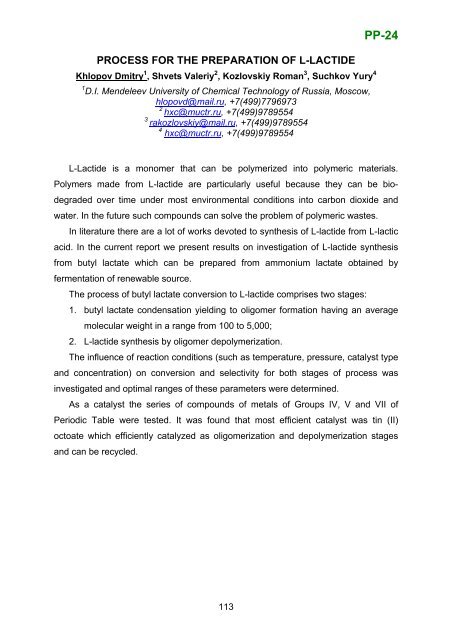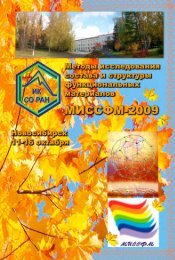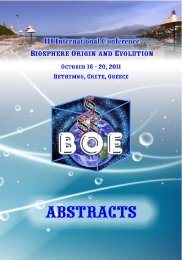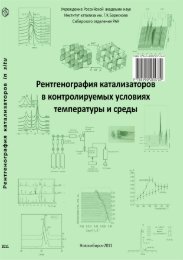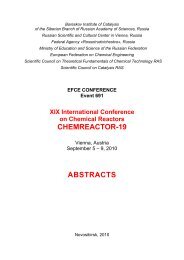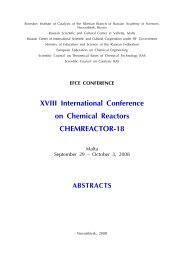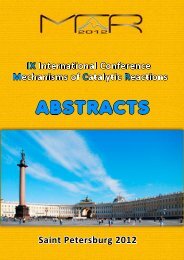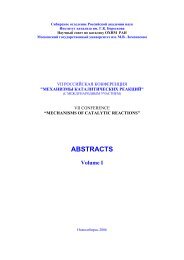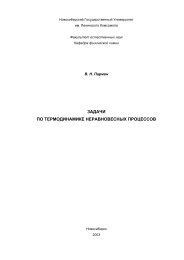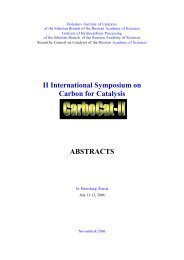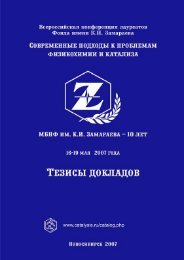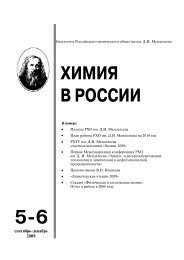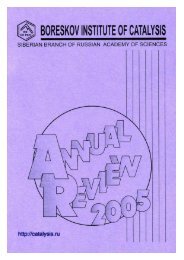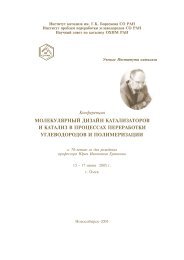PP-23HYDROGEN PRODUCTION BY ETHANOL STEAM REFORMINGIN A PALLADIUM-ALUMINA MEMBRANE REACTOR PREPAREDBY COMBINE SOL-GEL AND ELECTROLESS PLATING TECHNIQUEOVER Ni / γ-Al 2 O 3 CATALYSTManal Ismail 1,2 , Zahira Yaakob 1,2 , Wan Ramli Wan Daud 1,2 , Ratna Sari 11 Fuel Cell <strong>Institute</strong>, Universiti Kebangsaan Malaysia, Bangi, Selangor, Malaysiamanal@eng.ukm.my2 Department <strong>of</strong> Chemical & Process Engineering, Faculty <strong>of</strong> Engineering &Built Environment, Universiti Kebangsaan Malaysia, Bangi, Selangor, MalaysiaThe palladium-alumina membrane reactor has been packed with Ni/γ-Al 2 O 3 forcarrying out ethanol steam reforming. The preparation <strong>of</strong> the palladium coatedceramic alumina membrane has been performed using combine sol-gel process andthe electroless plating technique. Ni/γ-Al 2 O 3 catalyst was prepared by the wetnessimpregnation <strong>of</strong> γ-Al 2 O 3 support. The H 2 O/ C 2 H 5 OH feed molar ratio <strong>of</strong> the inletreactant was 13:1. The reactions were conducted at various temperatures 400-450°C. The effect <strong>of</strong> pressures difference across the membrane (2x10 4 -8x10 4 Pa)and flow rate (2.086E-4 – 4.173E-4 mol/s) toward hydrogen yield (%) have beeninvestigated. It is shown in this study that the H 2 O/ C 2 H 5 OH feed molar ratio 2.086E-4mol/s produced a higher hydrogen yield in operating at 450°C and 8x10 4 Pa.References:[1]. H. Bissett, J. Zah and H. M. Krieg, 2008. «Manufacture and optimization <strong>of</strong> tubular ceramicmembrane supports», Powder Technology Vol. 181, pp. 57-66.[2]. Y. Huang and R. Dittmeyer, 2007. «Preparation <strong>of</strong> thin palladium membranes on a porous supportwith rough surface», Journal <strong>of</strong> Membrane Science Vol. 302, pp. 160-170.[3]. M.R. Othman and I.S. Sahadan, 2006. «On the characteristics and hydrogen adsorptionproperties <strong>of</strong> a Pd/γ-Al 2 O 3 prepared by sol-gel method», Microporous and Mesoporous MaterialsVol. 91, pp. 145-150.[4]. M. Dogan and S. Kilicarslan, 2008. «Effect <strong>of</strong> process parameters on the syhnthesis <strong>of</strong> palladiummembrane», Nuclear Instruments and Methods in Physics Research B Vol. 266, pp. 3458-3466.[5]. S. Tosti, A. Basile, F. Borgognoni, V. Capaldo, S. Cordiner, S. Di Cave, F. Gallucci, C. Rizzello, A.Santucci, E. Traversa, 2008. «Low temperature ethanol steam reformer in Pd – Ag membranereactor. Part 2 : Pt – based and Ni – based catalyst and general comparison», Journal <strong>of</strong>Membrane Science, Vol. 308, pp. 258-263.[6]. A. Basile, F. Gallucci, A. Iulianelli, S. Tosti, Enrico Drioli, 2006. «The pressure effect on ethanolsteam reforming in membrane reactor: experimental study», Desalination Vol. 200, pp. 671-672.[7]. J. Sun, X. Qiu, F. Wu, W. Zhua, 2005. «H 2 from steam reforming <strong>of</strong> ethanol at low temperatureover Ni/Y 2 O 3 , Ni/La 2 O 3 and Ni/Al 2 O 3 catalysts for fuel-cell application», International Journal <strong>of</strong>Hydrogen Energy Vol. 30, pp.437-445.Acknowledgements:The authors gratefully acknowledge the financial support from Universiti KebangsaanMalaysia under grant UKM-GUP-TK-08-17-321.112
PROCESS FOR THE PREPARATION OF L-LACTIDEKhlopov Dmitry 1 , Shvets Valeriy 2 , Kozlovskiy Roman 3 , Suchkov Yury 41 D.I. Mendeleev University <strong>of</strong> Chemical Technology <strong>of</strong> <strong>Russia</strong>, Moscow,hlopovd@mail.ru, +7(499)77969732hxc@muctr.ru, +7(499)97895543rakozlovskiy@mail.ru, +7(499)97895544 hxc@muctr.ru, +7(499)9789554PP-24L-Lactide is a monomer that can be polymerized into polymeric materials.Polymers made from L-lactide are particularly useful because they can be biodegradedover time under most environmental conditions into carbon dioxide andwater. In the future such compounds can solve the problem <strong>of</strong> polymeric wastes.In literature there are a lot <strong>of</strong> works devoted to synthesis <strong>of</strong> L-lactide from L-lacticacid. In the current report we present results on investigation <strong>of</strong> L-lactide synthesisfrom butyl lactate which can be prepared from ammonium lactate obtained byfermentation <strong>of</strong> renewable source.The process <strong>of</strong> butyl lactate conversion to L-lactide comprises two stages:1. butyl lactate condensation yielding to oligomer formation having an averagemolecular weight in a range from 100 to 5,000;2. L-lactide synthesis by oligomer depolymerization.The influence <strong>of</strong> reaction conditions (such as temperature, pressure, catalyst typeand concentration) on conversion and selectivity for both stages <strong>of</strong> process wasinvestigated and optimal ranges <strong>of</strong> these parameters were determined.As a catalyst the series <strong>of</strong> compounds <strong>of</strong> metals <strong>of</strong> Groups IV, V and VII <strong>of</strong>Periodic Table were tested. It was found that most efficient catalyst was tin (II)octoate which efficiently catalyzed as oligomerization and depolymerization stagesand can be recycled.113


